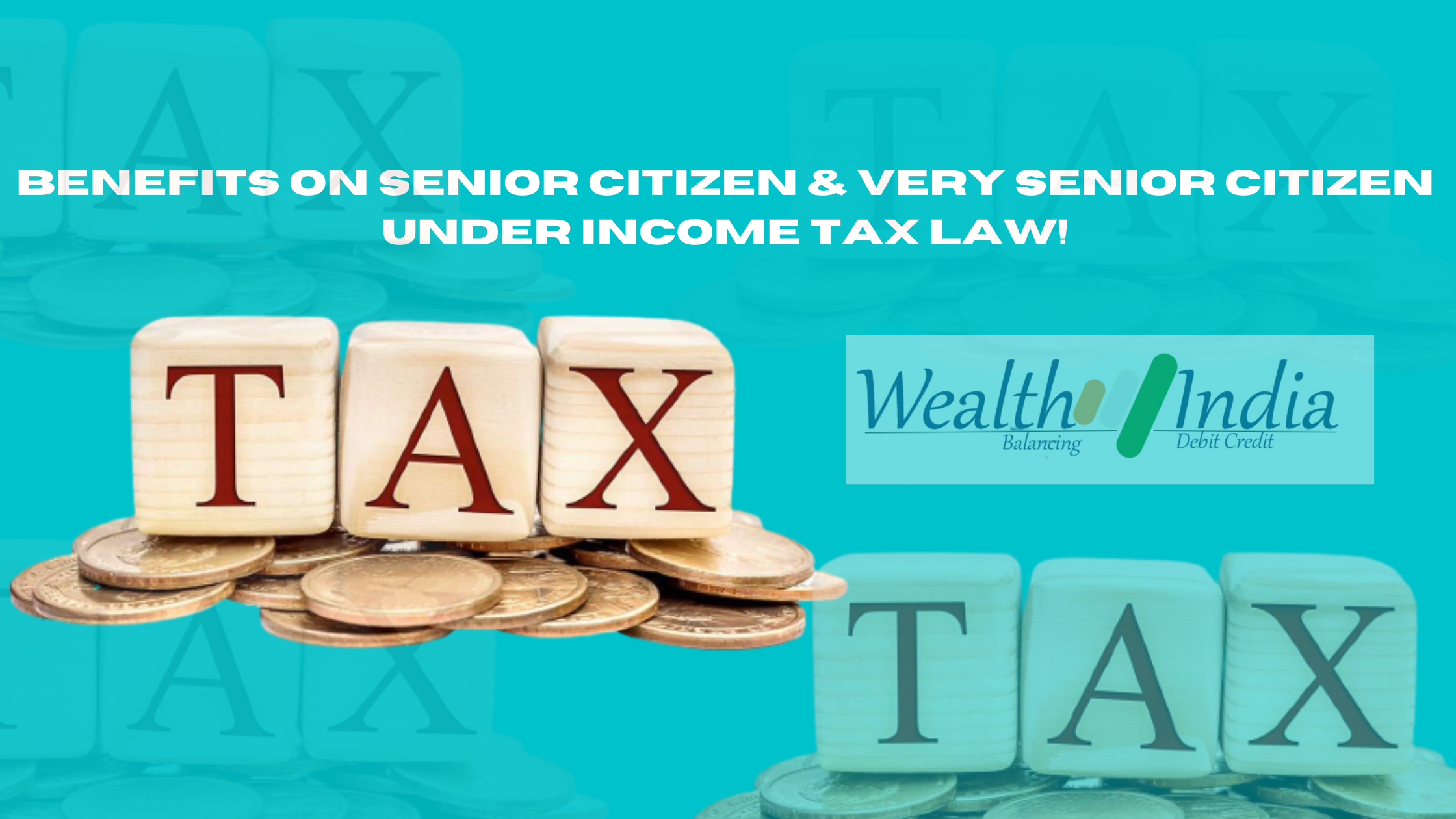
Senior citizens and a very senior citizen are granted a higher exemption limit as compared to normal tax payers. Exemption limit is the quantum of income up to which a person is not liable to pay tax. The exemption limit granted to senior citizen and very senior citizen for the financial year 2020-21 is as follows :
| Senior citizen | Very Senior citizen |
|---|---|
| A senior citizen is granted a higher exemption limit compared to non-senior citizens. The exemption limit for the financial year 2020-21 available to a resident senior citizen is Rs. 3,00,000. The exemption limit for non-senior citizen is Rs. 2,50,000. Thus, it can be observed that an additional benefit of Rs. 50,000 in the form of higher exemption limit is available to a resident senior citizen as compared to normal tax payers. | A very senior citizen is granted a higher exemption limit compared to others. The exemption limit for the financial year 2020-21 available to a resident very senior citizen is Rs. 5,00,000. The exemption limit for non-senior citizen is Rs. 2,50,000. Thus, it can be observed that an additional benefit of Rs. 2,50,000 in the form of higher exemption limit is available to a resident very senior citizen as compared to normal tax payers. |
Before understanding the age criteria, it is very important to know that the tax benefits offered under the Income-tax Law to a senior citizen/very senior citizen are available only to resident senior citizen and resident very senior citizens. In other words, these benefits are not available to a non-resident even though he may be of higher age. The age and other criteria to qualify as a senior citizen and very senior citizen under the Income-tax Law are as follows :
| Criteria for senior citizen | Criteria for very senior citizen |
|---|---|
| Must be of the age of 60 years or above but less than 80 year at any time during the respective year. | Must be of the age of 80 years or above at any time during the respective year. |
| Must be resident | Must be resident |
As per section 208, every person whose estimated tax liability for the year is Rs. 10,000 or more, shall pay his tax in advance, in the form of “advance tax”. However, section 207 gives relief from payment of advance tax to a resident senior citizen. As per section 207 a resident senior citizen (i.e., an individual of the age of 60 years or above during the relevant financial year) not having any income from business or profession, is not liable to pay advance tax.
Yes, the Income-tax Law very well takes care of the senior citizens of the nation by offering them several tax benefits.In this part you can gain knowledge of various benefits offered by the Income-tax Law to senior citizens.
From Assessment year 2019-20 onwards, a very senior citizen filing his return of income in Form ITR 1/4 can file his return of income in paper mode, i.e., for him e filing of ITR 1/4 (as the case may be) is not mandatory. However, he may go for e-filing if he wishes.
Section 80TTB of the Income Tax law gives provisions relating to tax benefits available on account of interest income from deposits with banks or post office or co-operative banks of an amount upto Rs. 50,000 earned by the senior citizen (i.e., an individual of the age of 60 years or above). Interest earned on saving deposits and fixed deposit, both shall be eligible for deduction under this provision.
Section 194A of the Income Tax law gives corresponding provisions that no tax shall be deducted at source from payment of interest by bank or ppost-office or co-operative bank to a senior citizen up to Rs. 50,000. Therefor limit is to be computed for every bank individually.
section 80DDB of the Income-tax Law gives various provisions relating to tax benefits available on account of expenditure on medical treatment of specified diseases. Click the following link to know about details of section 80DDB which covers the details of special benefits under section 80DDB vailable to a senior citizen. Check page 8 topic “Deduction in respect of expenditure on medical treatment of specified diseases [ section 80DDB]”
TAX BENEFITS DUE TO LIFE INSURANCE POLICY, HEALTH INSURANCE POLICY AND EXPENDITURE ON MEDICAL TREATMENTsection 80DDB of the Income-tax Law gives various provisions relating to tax benefits available on account of expenditure on medical treatment of specified diseases. Click the following link to know about details of section 80DDB which covers the details of special benefits under section 80DDB vailable to a senior citizen. Check page 8 topic “Deduction in respect of expenditure on medical treatment of specified diseases [ section 80DDB]”
